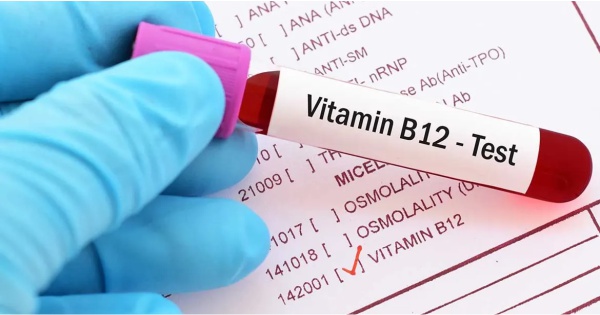Contents
What is Vitamin B12?
Vitamin B12 is an essential vitamin that helps maintain healthy neural and mental function. In humans, it is obtained only from animal proteins.
Vitamin B-12 plays an essential role in:
- red blood cell formation,
- cell metabolism,
- nerve function and
- the production of DNA
Vitamin B 12 plays a vital role in pregnancy as it can help to prevent spinal and central nervous system congenital disabilities in the baby.
Vitamin B12 and Folic Acid
Folic acid, also called folate, is another B vitamin. Folic Acid and Vitamin B12 work closely as team players to form an integral part of our metabolism. These two B vitamins are also crucial for a healthy functioning nervous system.
What leads to B12 deficiency?
Shortage of the vitamins needed to produce enough healthy red blood cells leads to vitamin deficiency anaemia.
It can also develop if your diet lacks specific vitamins or because your body can’t properly absorb the nutrients you eat.
When to see a doctor?
Please see a doctor if you’re experiencing vitamin B12 or folate deficiency anaemia symptoms. These conditions can often be diagnosed based on your symptoms and the results of a blood test.
Your doctor might recommend a B-12 test if you have:
- tingling in the hands and feet
- problems with balance
- a racing heart
- confusion
- dementia
- weakness
- loss of appetite
You may also take this test if your doctor suspects you might have pernicious anaemia. Pernicious anaemia is a reduction in red blood cells. It occurs when your intestines can’t absorb vitamin B-12, necessary for red blood cell production. Symptoms are not often seen in people younger than 30 years old. The average age of diagnosis is 60.
Interpreting B-12 test results
Both high and low levels of vitamin B-12 may indicate an underlying problem. Low levels of B-12 can suggest anaemia, an internal parasite, and hyperthyroidism. High levels of B-12 may increase your risk for cancer.
High levels of B-12 can also be a sign of:
- liver disease
- certain types of leukaemia
- diabetes
- kidney failure
It’s also possible to have low or high vitamin B-12 without other health concerns. Most health conditions will have additional symptoms other than abnormal vitamin B-12 levels.
Normal ranges can also vary from laboratory to laboratory, so it’s important to discuss your results with your doctor.
Blood tests
Different types of blood tests can be carried out to help identify people with a possible vitamin B12 or folate deficiency.
These tests check:
- whether you have a lower level of haemoglobin (a substance that transports oxygen) than normal
- whether your red blood cells are larger than normal
- the level of vitamin B12 in your blood
- the level of folate in your blood
Disclaimer:
This blog is for informational purposes only and should not be construed as advice or as a substitute for consulting a physician. It is not a substitute for medical advice or treatment from a healthcare professional.
Sources:
https://www.labtestsonline.org.au/learning/test-index/vitamin-b12





